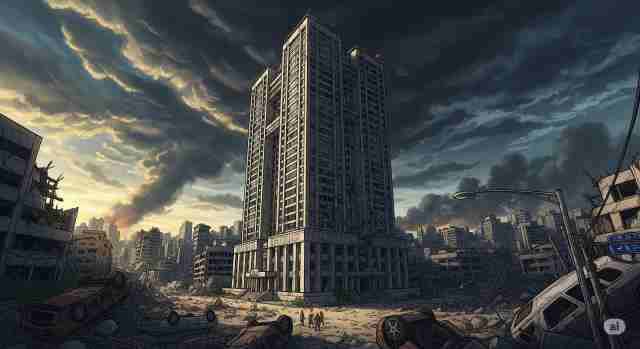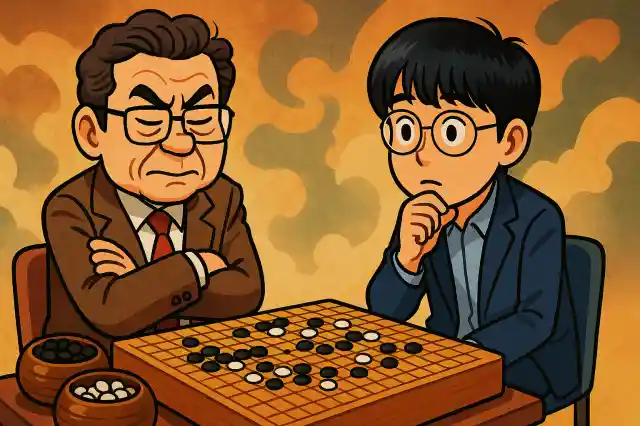Movie Recommendation: Concrete Utopia (콘크리트 유토피아) — A Gripping Korean Disaster Drama Redefining the Genre
The Global Rise of “Concrete Utopia”
“Concrete Utopia” (콘크리트 유토피아) has quickly become the most talked-about Korean film in English-speaking entertainment circles this summer. Following its international streaming debut, the movie has surged in popularity, consistently ranking as one of the most recommended Korean titles on social media, film forums, and major review platforms. Its timely release on Western streaming services and buzz from international film festivals have fueled lively discussions about the evolution of Korean cinema and its capacity to deliver both commercial thrills and sharp social commentary.
Plot Synopsis: Survival and Morality Amid Ruins
Set in a devastated Seoul after a catastrophic earthquake, “Concrete Utopia” thrusts viewers into a world where only one apartment complex, the Imperial Palace Apartments, stands unscathed amidst the city’s ruins. The residents, led by the enigmatic Yeong-tak (Lee Byung-hun), must navigate the chaos as desperate survivors from outside beg for shelter. The apartment’s new rules are strict: only residents can stay, food and resources are rationed based on each person’s contribution, and decisions are made democratically—at least in theory.
As the story unfolds, the apartment transforms from a haven into a powder keg of suspicion, power struggles, and moral dilemmas. The central characters—couple Min-sung (Park Seo-joon) and Myung-hwa (Park Bo-young)—find themselves torn between compassion and the community’s harsh rules. The arrival of Hye-won, a young girl with ties to both the community and the outside world, challenges the fragile order and exposes the cracks in the residents’ utopian facade.
Why “Concrete Utopia” Resonates with Global Audiences
A Disaster Movie with Depth
Unlike conventional disaster films, “Concrete Utopia” excels in blending suspenseful survival drama with thought-provoking social allegory. The film explores themes of community, leadership, and the boundaries of morality under extreme pressure. Its narrative draws clear parallels to global issues—class divisions, the fragility of social order, and the ethical costs of survival.
Stellar Cast and Performances
Much of the movie’s international acclaim can be credited to its cast. Lee Byung-hun’s portrayal of Yeong-tak is both charismatic and unsettling, while Park Seo-joon and Park Bo-young deliver emotionally charged performances as a couple forced to confront impossible choices. These nuanced portrayals have sparked widespread admiration and passionate debate among audiences worldwide.
Critical Acclaim and Streaming Success
“Concrete Utopia” has maintained an impressive 88-92% approval rating on major critic sites. In the first week of its overseas release, it became one of the most-watched Korean films in countries like the US, UK, Australia, and Canada. The film’s popularity is evident across platforms: English-language YouTube reviewers and movie podcasts discussed it over 150 times in July and August 2025, and Reddit threads on r/movies and r/KDRAMA garnered thousands of upvotes.
The Moral Heart of the Story
At its core, “Concrete Utopia” is a meditation on what it means to be human when civilization collapses. The residents’ attempts to build a fair society quickly devolve into suspicion and exclusion. Hye-won’s arrival as an outsider-turned-insider disrupts the community’s precarious balance, forcing everyone to confront their own prejudices and fears.
The narrative does not shy away from the darkest corners of human nature. Decisions about who deserves to live or die, the ethics of resource allocation, and the dangers of charismatic leadership are all explored in ways that feel both universal and uniquely Korean. The bleakness of the film’s world is matched by moments of unexpected kindness and resilience, making the story deeply moving and relatable.
A New Benchmark for Korean Cinema
“Concrete Utopia” stands as a testament to the creative ambition of contemporary Korean filmmakers. Following in the footsteps of genre-defining hits like “Parasite” and “Train to Busan,” it pushes the boundaries of what disaster movies can achieve. The film’s willingness to engage with social critique, combined with its commercial appeal, marks it as an essential watch for anyone interested in the future of global cinema.
The movie’s influence extends beyond its narrative. It has become a litmus test for viewers curious about Korean cinema’s expansion into larger-budget, thematically ambitious storytelling. For many Western audiences, “Concrete Utopia” serves as a gateway to a broader appreciation of Korean film’s diversity and depth.
Actionable Takeaways for Viewers
- Watch “Concrete Utopia” on Major Streaming Platforms: The film is now available on leading international services, making it easily accessible for global audiences.
- Engage with Online Discussions: Join conversations on platforms like Reddit and Twitter to explore the film’s moral questions and share your perspectives.
- Explore Related Korean Cinema: If “Concrete Utopia” resonates with you, consider diving into other acclaimed Korean films such as “Parasite,” “Train to Busan,” and “Badland Hunters,” the standalone sequel set in the same post-earthquake universe.
- Reflect on the Themes: The movie’s exploration of community, leadership, and survival ethics offers a chance to reflect on real-world issues—making it a powerful conversation starter for friends, family, or classroom discussions.
Final Thoughts: Why “Concrete Utopia” Is a Must-Watch
“Concrete Utopia” is more than a disaster movie—it’s a mirror held up to society, asking how we would act when faced with the ultimate test of our values. Its gripping plot, complex characters, and timely social commentary have made it the centerpiece of the current “Korean movie recommendation” trend in the English-speaking world. For anyone seeking a film that combines heart-pounding suspense with genuine empathy and insight, “Concrete Utopia” is an unmissable cinematic experience.
For more detailed plot recaps and in-depth reviews, visit The Review Geek, Sight and Sound, Wikipedia, and RogerEbert.com.
Related Posts
- Best Korean Movies to Stream in 2025
- How Korean Cinema Is Changing Global Storytelling
- Survival Dramas: Exploring Humanity Under Pressure


